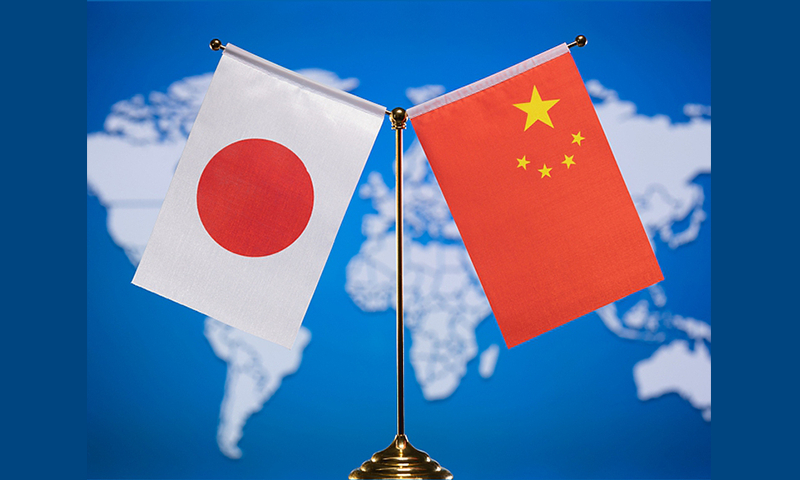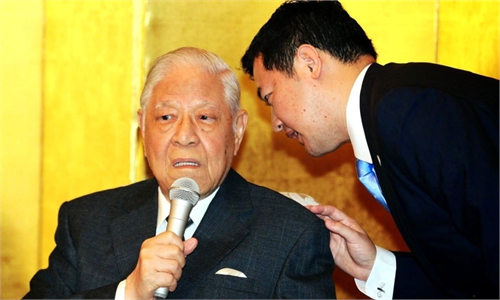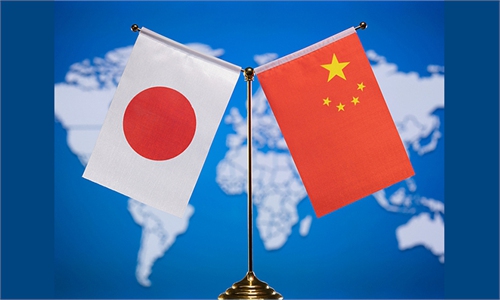Japan continues to address 'concerns' over China during defense ministers' meeting, attempting to take advantage from regional conflicts

File Photo: VCG
Following Japanese Prime Minister Fumio Kishida and Defense Minister Nobuo Kishi's speeches at the 19th Shangri-La Dialogue on Friday, Kishi continued to express Japan's so-called "concerns" during his meeting with China's State Councilor and Defense Minister Wei Fenghe on Sunday. Experts said that it was not surprising for Kishi, a long-time China-bashing politician to bring these issues up in the dialogue. Still experts said this first face-to-face meeting between both defense ministers in over two years signaled some goodwill from both sides.
China wants to strengthen bilateral cooperation and build a relationship based on consensus between the two governments, China's State Councilor and Defense Minister Wei Fenghe said in the meeting, Japanese media outlet the Japan Times reported.
After being canceled for two years due to the COVID-19 pandemic, the IISS 19th Shangri-La Dialogue took place in Singapore from Friday to Sunday.
The China-Japan defense ministers' dialogue on Sunday drew wide attention from the international community, as Japan is the one that closely follows the US in using the current Russia-Ukraine crisis to hype the Chinese mainland's "threat" to the island of Taiwan. The Taiwan question and South China Sea issue were covered during the meeting, according to Reuters. Kishi told Wei that "Many concerns exist between Japan and China, including various security issues," the report said.
Analysts believed that it shows that Japan wants to take advantage of the deep involvement and military presence of the US in the South China Sea, as well as some ASEAN members who have disputes with China over maritime features, to make profits and form the so-called free and open Indo-Pacific promoted by Japan.
On Friday, Japanese Prime Minister Fumio Kishida used the Russia-Ukraine conflict as an example to oppose "unilateral changes" to the status quo by force and unveil a plan to raise Japan's defense budget. "There is no such thing as a change of the status quo in the island of Taiwan influencing Japan's security because peaceful development and peaceful reunification across the Taiwan Straits are in essence more beneficial to China-Japan relations and the stable international situation in East Asia," Liu Jiangyong, vice dean of the Institute of Modern International Relations at Tsinghua University, told the Global Times on Sunday.
He noted that it is obvious that Japan's policy toward China has undergone a significant regression since the normalization of diplomatic relations 50 years ago. "In the future, Japan will use the Taiwan question or the so-called South China Sea issue to further build up its military and weave a strategic encircling net to contain China in the international arena. I believe China should remain on high alert," Liu said.
For issues on which the two sides have different positions, open dialogue is actually the most appropriate choice, Liu said. At the same time, China and Japan can also consider appropriate cooperation in non-traditional security areas such as climate change and combating maritime smuggling and drug trafficking.
Wang Guangtao, an associate research fellow at the Center for Japanese Studies of the Shanghai-based Fudan University, also noted this defense meeting is constructive while condemning Japan's recent provocations on the Taiwan question.
"There are some inherent structural issues between China and Japan, such as historical issues and the Diaoyu Islands issue, but these issues are between China and Japan. However, the Taiwan question and the South China Sea issue are all hyped by Japan to contain China by taking itself as a concerned country, which is very detrimental to the improvement of China-Japan relations," Wang noted.
This year marks the 50th anniversary of the normalization of China-Japan relations, which is a very important juncture. It is of great significance to break through the difficulties and have a face-to-face dialogue amid the epidemic, which is also in line with the wishes of the people of China and Japan, experts said.


